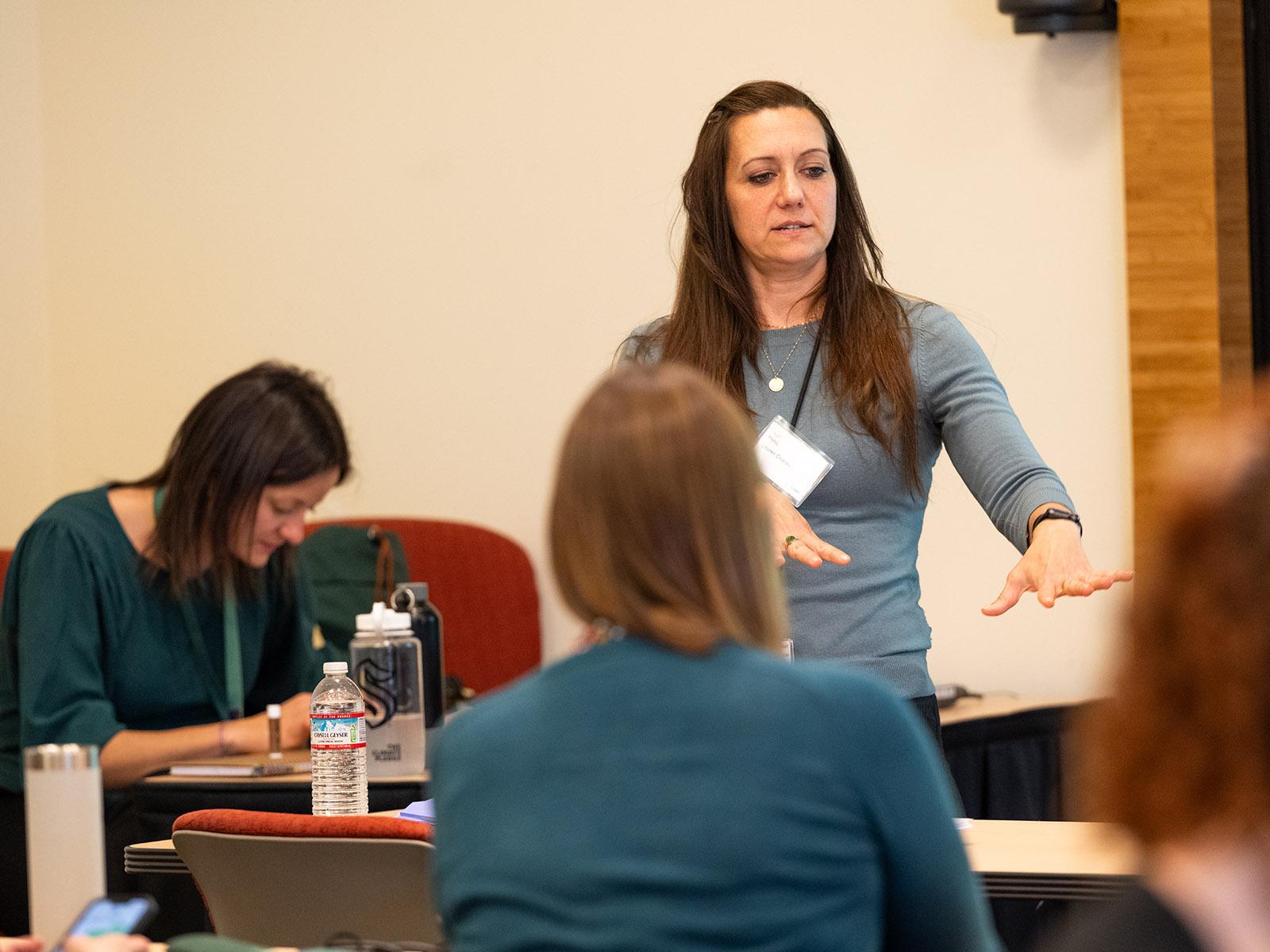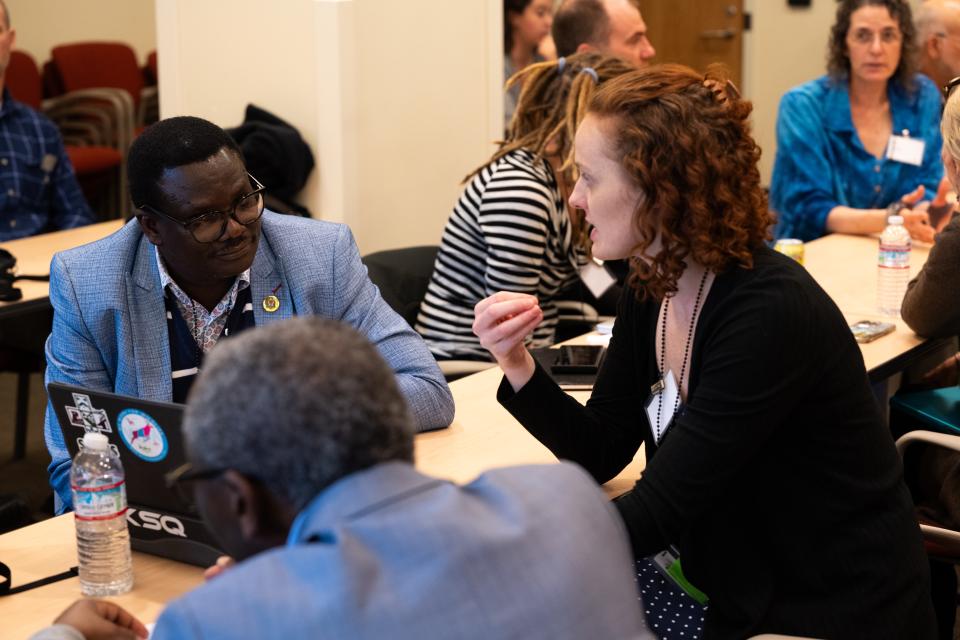International Experts Gather at Inaugural Global Wildlife Data Sharing Conference
Focus is on improving pandemic preparedness

PNNL hosted the inaugural Global Wildlife Data Sharing Conference on May 20-21, 2024.
(Photo by Andrea Starr | Pacific Northwest National Laboratory)
Pacific Northwest National Laboratory (PNNL) hosted the inaugural Global Wildlife Data Sharing Conference on May 20–21, 2024. The conference brought together international experts and stakeholders in wildlife health, One Health security, and data science to discuss the benefits and challenges of sharing and harmonizing diverse databases for wildlife biosurveillance, signal detection, and early warning for pandemic preparedness.
Organized by PNNL's Artificial Intelligence (AI)-Driven One Health Security team, the conference participants included a diverse group of experts from academia, nongovernmental organizations, wildlife agencies, other government agencies, and national laboratories from Canada, Tanzania, the United Kingdom, and the United States.
"PNNL is breaking barriers with strategic investments in AI-driven One Health security," said Chief Data Scientist Lauren Charles, manager of PNNL’s Applied AI Systems Group. "With support from U.S. agencies, we are actively creating a collaborative platform that integrates traditional and nontraditional signals from humans, animals, plants, and the environment for faster detection, prevention, and mitigation of health threat events."
The conference focused on obstacles prohibiting data sharing among the international wildlife organizations and building relationships between potential data providers and consumers. This approach enables identification of the wildlife community’s needs while gaining a deeper understanding of the data being collected.
Participants agreed the key outcomes necessary are to develop a shared system to improve data quality and forecasting, standardize processes for data sharing and harmonization, and provide the wildlife community with analytics and tools that can integrate complex geospatial datasets. To get a glimpse of PNNL’s operational AI capabilities during the workshop, participants were introduced to the MedINT platform and given access for feedback.
“Data sharing leads to data diversity and the ability to apply more comprehensive data analytical approaches, like an AI-driven One Health approach,” said Samantha Erwin, lead of PNNL’s AI for One Health and Biodefense team. “By overlaying complex data sets, such as climate data, with information on wildlife health events, a greater understanding of prevalence and risk is possible.”
The PNNL team believes the associated triggers and automatic notifications to health threats must be established to get ahead of these events.

The conference concluded with a discussion of creating a potential steering committee to represent the voice of the different subsets of the wildlife sector and guide the development of the Global Wildlife Data Platform. Post workshop, the PNNL team will be engaging with participants to address concerns and finalize data use agreements toward a global database. To strengthen global One Health security, the collaborations formed will support the ultimate shared objective of a near real-time epidemiological surveillance capability powered by AI to detect unusual events in wildlife.
Published: July 1, 2024